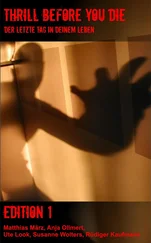“They have a piano there?” Aunt Catherine asked.
“They do now. And the busboy started playing and three of the young waitresses started singing. And they sang the most lovely songs from The Sound of Music.”
“‘Edelweiss,’ I suppose,” her father said.
“Yes, absolutely. Marguerite said it was beautiful, and they all looked adorable in their little outfits.”
“As I recall, Mother, when I worked there you weren’t wild about my little outfit. You thought it showed too much cleavage.”
“You’re my daughter.”
“If we’re going to go out to dinner, let’s go to Polly’s instead and have pancakes,” Charlotte said, referring to a nearby pancake parlor. She glanced over at Willow and added, “After all, most of us can eat pancakes. We went to Gerta’s last summer, and everything was meat.”
Uncle Spencer smiled sardonically. “Ah, yes. Remember the Alpine Meat Tray? A lazy Susan with a bit of cow, a little pig. Some chicken.”
“There was something else,” her father said. “I swear there were four kinds of meat.”
“Werewolf?”
“You’re thinking too eastern European, Spencer. Too Romanian. Austria was never known for werewolves,” Grandmother said.
“Well, there’s a huge salad bar, so if we want to go to Gerta’s, it’s fine with me. I could live on spaetzle and a salad bar.”
“Spaetzle has eggs, Spencer. It’s loaded with eggs.” It was her aunt Catherine telling her uncle this, and Willow thought she sounded a bit like she was talking to a toddler.
Uncle Spencer turned to her and said-speaking so slowly it was as if every single word were a chore-“Fine, then. I will stick to the lettuce and the carrots and whatever soy protein they have at the salad bar.”
“There is no need to get huffy,” Aunt Catherine said. “I was only pointing out for you-”
“Correcting me, you mean.”
“No. I wasn’t sure if you knew-”
“I was simply trying to make all of your lives easier. I was trying to be agreeable. Truth is, I really don’t give a-” He paused for the briefest of seconds before finishing his thought. “I really don’t care where we eat.”
“Why don’t we all see how we feel tomorrow,” her mother said suddenly, her voice a tad louder than usual, and she got up from her chair and lifted young Patrick into her arms. When she sat back down, she discreetly opened a few buttons on her blouse and started to nurse. Normally Willow didn’t feel strongly about her mother nursing in public, but because she knew it made Grandmother uncomfortable she found herself looking away. She concentrated on her toes, dabbing polish on the tiny squares of her nails. Once she looked up and stared for a moment at the white plastic spikes in the ground that marked the outer edges of the badminton court and at the grass in the yard, so verdantly green this time of the day that it shimmered. She noticed that Charlotte was glancing back and forth between her parents, a hint of nervousness in her eyes, and she wondered if Uncle Spencer and Aunt Catherine fought often.
As she resumed her work on her feet, she wished there were fewer silences in the grown-ups’ conversation so everyone would not have to hear Patrick savoring his early dinner with the gluttonous abandon of a baby.
BY DESIGN, the Contour Club-the name an homage to the contour of the Old Man of the Mountain, the massive rock profile that once jutted out from a granite cliff a mere three miles to the south-was not physically impressive. Its founders, including patriarch James MacGregor Seton himself, wanted to be sure that the establishment had a rustic flavor to it. Consequently, the clubhouse, though spacious to the point that it sprawled, was only a single floor. It was shaped roughly like a croissant, with thin white clapboards that were repainted at least every other year and reflected the sun like fresh snow. The inner arc looked out on the first hole of the golf course and the practice green, and the outer walls faced the Presidential Range and Mount Lafayette. The tables in the dining room belonged in a hunting lodge-the pine had been stained the brown of old acorns, and the legs were stocky and straight-and the oak chairs with their massive cushions appeared capable of swallowing small children whole. The bar had the heads of deer and moose and black bears on two walls (though the animals without exception had been killed by generations long gone), and a series of shelves with the taxidermal remains of a fox, a mink, and a bobcat (again, all brought to the club years and years earlier). Another wall had the plaques with the names of the annual champions in golf and tennis and bridge, and twice there appeared Catherine’s name: Her one summer after college when she was still Catherine Seton, she won the women’s singles championship handily; then, after she was married, as Catherine Seton-McCullough, she and Eleanor Morrison had taken the women’s doubles cup.
Most of the Contour Club members were families like the Setons: Either they lived in Manhattan or Boston (or the suburbs of Manhattan or Boston) and only spent small parts of the year in the White Mountains at their second homes, or they had retired to the area after successful careers in New York or Massachusetts. Certainly there were some members who were actually born in New Hampshire: lawyers and doctors and accountants, and some of the developers and builders of the nearby ski resorts. But they were outnumbered and most felt vaguely second class because they had never worked in the Prudential Center or ridden subways twice daily to and from Wall Street.
The bonfire for the teenagers was lit around eight thirty, when there was still a purple gauze to the west and-if the girls had been back at their grandmother’s house now-just enough light for a few more minutes of badminton. But the mountains to the east were almost invisible now, just one more part of the distant night sky. Occasionally a gang of moths, hobolike, would approach the blaze before disappearing either into the night or the flames, and the girls saw fireflies that looked like stars.
For the past hour, since the teens had started to congregate with their cans of soda (and, so far, no one was drinking anything stronger than soda), Willow and Charlotte had been looked after largely by Gwen-the lifeguard who was teaching them how to dive. It had crossed Willow’s mind that either her parents or her aunt and uncle had probably asked the young woman to keep an eye on the two of them, but she wasn’t sure. It might just have been that Gwen had taken pity on them: Charlotte was at least two years younger than everyone else, and Willow was four. Gwen wasn’t with them every moment, but periodically she would wander by to see how they were and hand them some marshmallows or point an open bag of popcorn in their direction. A couple of times other teenagers had come with her, but they always seemed to view Willow and Charlotte as small, pleasant animals that could be stroked briefly and abstractedly and then left once more to their own devices.
As the evening progressed it seemed to Willow that Charlotte’s biggest disappointment wasn’t that she was younger than the rest of the crowd. After all, she had expected this. Rather, it was that Gary, the lifeguard on whom it was obvious to anyone who cared to notice such things she had a serious crush, was actually hanging around with the grown-ups back at the clubhouse. Here Charlotte was with the teenagers at the bonfire, and the teenager she was most interested in had chosen to be with the adults. Worse, when they had first started down the hill with Gwen to the site of the great mound of long dead limbs and dying tree branches, Gary had been chatting with Aunt Catherine. The two of them were on the terrace with those old-fashioned highball glasses in their hands, and they were talking like they were old friends.
Читать дальше











